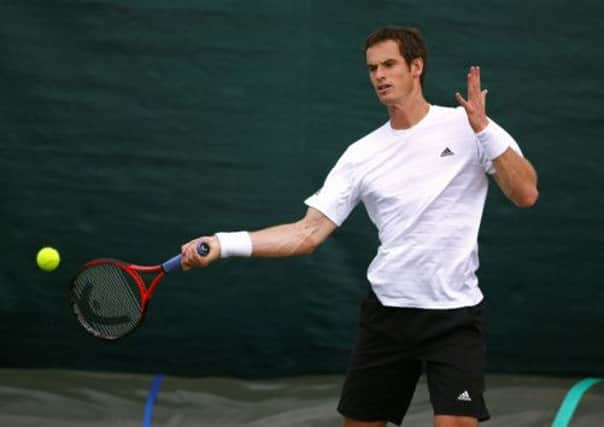Emma Cowing: Andy Murray finally bares his soul


His reaction was immediate, and heartbreaking. He stumbled over his words, broke down, gathered himself, broke down again and then, in a gesture as simple as it was moving, buried his face in the fur of his little Border terrier Rusty sleeping quietly in his lap, and sobbed.
Murray has, rightly, dodged questions about Dunblane for years. He was at the school that day, “his class were next in the gym” his mother Judy revealed. Both he and brother Jamie knew Thomas Hamilton – Judy used to give him lifts up to the boys’ club he ran and which both Murray brothers attended.
Advertisement
Hide AdAdvertisement
Hide AdThat Murray addressed it during the documentary – Andy Murray, The Man Behind The Racquet – was important, not because of what he said, which revealed little, nor because it showed how deeply he continues to feel about the tragedy that rocked his hometown so many years ago, which we could only expect, but because of how touched, honoured and humbled he clearly feels that the Dunblane community has found some comfort in the aftermath of the horror in seeing its name attached to something positive: him.
And so Murray has proved conclusively something that we first learnt about him last summer: big boys do cry. For a sportsman for whom the words “dour”, “grumpy” and “face like a wet weekend in Wester Hailes” have never been far away, this is indeed a revelation. Until that moment on Centre Court at Wimbledon last year, moments after losing the final to Roger Federer, when he grabbed the microphone and said in a voice cracking with emotion “I’m going to try this … and it’s not going to be easy”, Murray’s status has changed. No longer the surly, monosyllabic figure in tennis whites who sat through press conferences and interviews purely on sufferance, a pleasant and funny young man has emerged. One who is surprisingly down to earth, in touch with his emotions and somewhat overwhelmed that he has morphed into a global celebrity. Indeed, in the documentary we saw him close to tears again during a charity match he arranged and played in this month to raise money for the Royal Marsden hospital, where his best friend Ross Hutchins is being treated after being diagnosed with cancer.
It is easy to be cynical about Murray’s change of tear duct. He is now managed by Simon Fuller, one-time manager of the Spice Girls and creator of the highly successful Pop Idol franchise – a man who knows a thing or two about the power of a personal story. But while Murray has clearly had an image overhaul, it smacks more of having it drilled into him to allow the world to see who he actually is, rather than creating a false image of himself.
Yet if Murray has changed, then so, I suspect, have we. Go back 30 years, ten even, and a man crying in public would have inspired horror, possibly even revulsion. Now, in an age where crying in public has become the norm – and in some environments, such as any TV show with the word “reality” in front of it, de rigeur – we accept, and sometimes even expect it of our celebrities. Last summer, you couldn’t move for crying men: from Chris Hoy to Mo Farrah to those Olympic rowing guys who missed out on a gold medal. Crying suddenly became an acceptable part of our national narrative. Seen through that light, Murray’s Wimbledon tears were merely wetting the way for the rest of them.
A couple of years back, a newspaper sent men out in three UK cities to cry in public and timed how long it would take someone to ask if they were OK. In London, it took 59 minutes, Leeds 30 minutes. In Glasgow, it took two-and-a-half minutes. A lot of nonsense is written about Scots and compassion, but it does suggest that when it comes to the basic act of responding sympathetically to another’s emotions, us Scots are up there with the best of them. No wonder we have taken Murray to our hearts, while the rest of the UK, it seems, is starting to.
The question, of course, is what will happen if Murray loses again this year? Will we still feel compassionate towards him if, instead of bursting into tears, he slams his racquet down and stalks off in a huff? I rather hope we will.